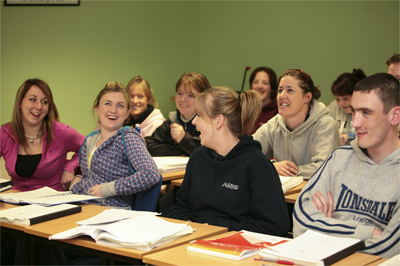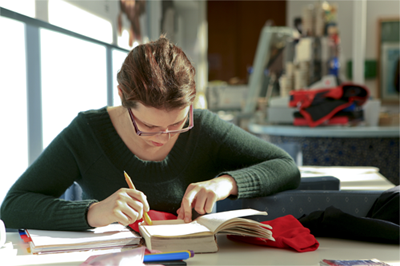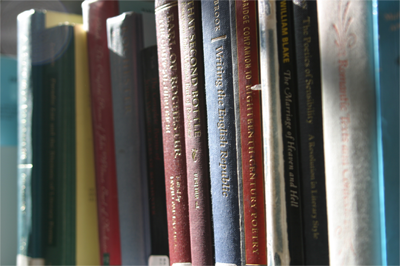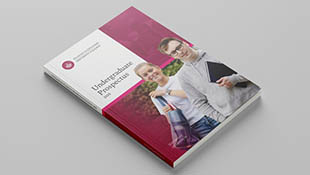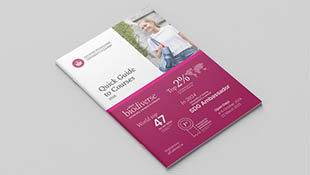-
Courses

Courses
Choosing a course is one of the most important decisions you'll ever make! View our courses and see what our students and lecturers have to say about the courses you are interested in at the links below.
-
University Life

University Life
Each year more than 4,000 choose University of Galway as their University of choice. Find out what life at University of Galway is all about here.
-
About University of Galway

About University of Galway
Since 1845, University of Galway has been sharing the highest quality teaching and research with Ireland and the world. Find out what makes our University so special – from our distinguished history to the latest news and campus developments.
-
Colleges & Schools

Colleges & Schools
University of Galway has earned international recognition as a research-led university with a commitment to top quality teaching across a range of key areas of expertise.
-
Research & Innovation

Research & Innovation
University of Galway’s vibrant research community take on some of the most pressing challenges of our times.
-
Business & Industry

Guiding Breakthrough Research at University of Galway
We explore and facilitate commercial opportunities for the research community at University of Galway, as well as facilitating industry partnership.
-
Alumni & Friends

Alumni & Friends
There are 128,000 University of Galway alumni worldwide. Stay connected to your alumni community! Join our social networks and update your details online.
-
Community Engagement

Community Engagement
At University of Galway, we believe that the best learning takes place when you apply what you learn in a real world context. That's why many of our courses include work placements or community projects.
School of Psychology
School of Psychology
Welcome. The School of Psychology is housed in a purpose-built facility in the centre of campus. We are dynamic, innovative and recognised for our teaching, research, and community contribution. We have a suite of professionally accredited undergraduate and postgraduate (Higher Diploma, Masters and PhD) programmes. We also have two active and successful research streams: Brain & Behaviour, and Health & Wellbeing. Researchers from both have participated in acquiring major national and international funding awards and we continue to develop a strong profile in quantity and quality of research output.
Latest University News
23 October 2024
Marine science reveals climate change lessons recorded by tiny polar organisms
New research shows that cooling during the last Ice Age over parts of the North Atlantic was up to 3˚C more severe than estimated
An international research team led by University of Galway has discovered a new method to accurately measure past polar sea surface temperature changes and climate change.
In a new study published in Nature Communications, Dr Audrey Morley, lecturer in Geography and Ryan Institute and iCRAG scientist at University of Galway, reveals how polar climate history can be detected by analysing the shells of foraminifera - microorganisms no bigger than a grain of sand.
The scientists involved in the project describe the research method as invaluable, as it can be applied to new and previously published datasets worldwide to re-evaluate the magnitude and geographical extent of marine polar climate change.
Dr Morley, lead author on the research paper, said: “In the future our new method will allow us to evaluate the ability of climate models to simulate polar amplified warming and cooling, which is especially important as climate model simulations targeting warmer than present climates have historically not captured the full extent of polar amplified warming.
“This information will enable a major leap forward in our ability to assess the sensitivity of Arctic climate and its role and variability within the global climate system. This will lay the foundation for an improved understanding of climate change.”
Foraminifera are small unicellular organisms which build a miniscule shell out of calcium carbonate and other elements available in seawater. In doing so, they record the chemistry and climate of seawater in their shell. At the end of their life, the empty shells sink to the seafloor and are deposited in sediment, like a marine archive year after year, millennia after millennia.
Through analysis of the magnesium and calcium (Mg/Ca) preserved in the shells, scientists can get an indirect measure or ‘proxy’ of sea surface temperatures.
These climate proxies allow scientists to reveal earth climate history from a few hundred years to billions of years ago and thereby improve an understanding of future climate change. However, in cold polar waters this method doesn’t work because it is compromised by the carbonate chemistry of seawater, leaving us without a tool to measure past marine polar climates.
The new research method solves a long-standing problem in Arctic Climate Science.
The team set out on several oceanographic cruises, including the Marine Institute’s RV Celtic Explorer in 2020, to collect living polar foraminifera together with the seawater that they lived in. This allowed the researchers to identify exactly how the carbonate chemistry of seawater impacts the temperature signal recorded in the magnesium and calcium Mg/Ca values of the tiny organism.
The research showed that for polar foraminifera, the oxygen isotopes preserved in the shells can be used as a proxy for the carbonate chemistry of seawater and when measured together on fossil foraminifera, Mg/Ca and oxygen isotopes can be used to reveal past polar sea surface temperatures globally.
Dr Morley said: “For example, when applied to the last ice age, this method shows that current estimates of cooling over North Atlantic mid-latitudes have been underestimated by up to 3˚C.
“Direct observations of sea surface temperatures in the Arctic are short and at best 150 years long. These short records leave us with a gap in our understanding and large uncertainties when predicting how future climate change will respond to rising greenhouse gas emissions.
“To improve our understanding and reduce uncertainties we look to the past using climate proxies – such as the foraminifera. Yet, most proxies of essential climate variables, such as sea surface temperatures, suffer from limitations when applied to cold temperatures that characterise Arctic environments.
“These limitations prevent us from constraining uncertainties for some of the most sensitive climate tipping points that can trigger rapid and dramatic global climate change. For example, the enhanced warming or cooling at high latitudes - also called Arctic/Polar Amplification; the disruption of heat transport by surface and deep ocean; sea ice loss; and permafrost melting, that are intrinsic to the polar regions.”
The research was funded by MSCA-IF Project ARCTICO funded by the European Research Council, the Marine Institute of Ireland Research Programme 2014-2020, Science Foundation Ireland Frontiers for the Future Project, and Grant in Aid funding from the Marine Institute for research expedition CE20009 on the RV Celtic Explorer.
Read the full study in Nature Communications here: https://www.nature.com/articles/s41467-024-53424-w
Ends
23 October 2024
Five University of Galway projects receive funding under Frontiers for the Future Programme
Minister for Further and Higher Education, Research, Innovation and Science, Patrick O’Donovan T.D., has announced five University of Galway research projects.
The projects are funded under the Taighde Éireann – Research Ireland Frontiers for the Future Programme and are part of a €26 million investment for 40 research projects nationwide.
The University of Galway projects include:
Professor Nicholas Allen, College of Medicine, Nursing and Health Sciences, and Dr Kathleen Gorman, Children’s Health Ireland.
The research aims to develop novel therapies for severe, currently untreatable childhood neurological disorders. Award - €638,566.
Dr Róisín Dwyer, College of Medicine, Nursing and Health Sciences.
The project will focus on breast cancer and aims to decipher how microRNAs sequences function and develop an approach to deliver them directly to tumour tissue, for targeted treatment of patients with advanced disease. Award - €764,657.
Dr Alexandre de Menezes, College of Science and Engineering.
Dr de Menezes’ project aims to offer novel ways to predict and control nitrous oxide emissions from soil, to support low emissions, sustainable agriculture. Award - €788,421.
Dr Linda Howard and Dr Siobhan McMahon - College of Medicine, Nursing and Health Sciences.
Research focuses on gene therapy combined with tissue engineering to reduce scarring and help promote nerve regeneration after spinal cord injury. Award - €554,562.
Dr Angela Carnevale and Dr Tobias Rossmann - College of Science and Engineering.
This project will involve machine learning and explicit computations of zeta functions in algebra. Award - €582,635.
Minister O’Donovan said: “I am pleased to announce the Research Ireland Frontiers for the Future projects, which support high-risk, high-reward research endeavours. The selected projects, spanning 12 research institutions, bring fresh and innovative ideas that will help boost business and benefit society.
“I would also like to commend Research Ireland and the Children’s Health Foundation for their great partnership and their great partnership and their focus on advancing children’s health through this funding program. I encourage others to create similar partnerships and collaborations.”
Professor Jim Livesey, Vice-President Research and Innovation at University of Galway, said: “I would like to congratulation our researchers who have successfully secured funding today through the Taighde Éireann – Research Ireland Frontiers for the Future Programme. These prestigious awards are a testament to the depth and quality of the research expertise across our campus and will provide solutions and opportunities in areas that impact Irish society.”
Celine Fitzgerald, Interim Chief Executive Officer, Research Ireland, said: “The Research Ireland Frontiers for the Future programme helps to build research capacity, expertise and reputation. This latest round of grants will support a diverse range of research positions and represents a strong commitment to developing future talent in key areas. It has been a pleasure having Children’s Health Foundation as a funding partner in that drive to strengthen Ireland’s research pipeline.”
Ends
22 October 2024
University of Galway athletes win big at Cross Country All-Ireland Intervarsity Championships
University of Galway has celebrated remarkable student athlete success taking home three titles, including the Overall Team award, at the Cross Country All-Ireland Intervarsity Championships.
It is the first time since 1988 that the University’s Athletics Club has won the top prize for overall performance at the competition.
The Cross Country success was led by Fiona Everard, who was crowned the Female Individual Champion for the second year, followed by the Men’s Team of 21 athletes who took the honours in their category, helping to secure the Overall Team honours.
Des Ryan, Director of Sport and Physical Wellbeing at University of Galway, said: “It is great to see the University of Galway Athletics club winning so many events at the Irish Universities Athletics Association Cross Country Championships. Since I arrived I am really impressed with the coaching, commitment, community, member numbers and the culture of the club. It is great to see the club winning national titles and having such high numbers participating. I am delighted that University of Galway has such a strong athletics club that develops high performing individuals and supports many of our students to be active. I am looking forward to seeing this club in the west of Ireland go from strength to strength over the coming years. It is the perfect place for young athletes in the University of Galway catchment to excel in their studies and in their sport. Special thanks to coach Matt Lockett and Club Captain Jack Maher.”
The All-Ireland Intervarsity Cross Country Championships took place at the UCC Sports Grounds at the weekend.
The Women’s Team of 13 athletes placed fourth overall, narrowly missing out on a medal. It included Fiona Everard along with first year student Caitlin Hughes, who made her debut for University of Galway, placing 12th, and Shauna Leydon and Neasa Ní Ainifein also placed high, coming in 23rd and 26th respectively.
The Men’s Team of 21 athletes dominated their competition, beating the nearest challengers (University of Limerick) by 45 points to take home the Fox Trophy. The team was led by Thomas McStay, who placed 4th overall in the men’s race. Oisin Murray followed in 6th, with Oisin Davis in 9th. Daniel Ryan Eilis made his debut for University of Galway, placing 12th. He was closely followed by Donal Farren and Luke Johnston who placed 13th and 14th respectively.
Feargal O’Callaghan, High Performance Lead at University of Galway, said: “We at University of Galway are very lucky to have such a talented group of athletes in our distance group and they are superbly led by coach Matt Lockett. It was fantastic to see Fiona Everard at the front once again and great to see her supported by a strong female team. While it was great to see the men win the team trophy, it was the winning of the combined trophy that really put the icing on the cake. I am looking forward to seeing the team perform in the University Road Relays in a few weeks.”
Jack Maher, University of Galway Athletics Club Captain, said: “To have three big wins on the day - Fiona Everard individual, Men's Team, and Overall Team - was remarkable. It was a history-making day for the club, winning the overall title for only the second time, the first being in 1988. It was a spectacular team performance with both teams showing great talent at the front of the race and backing it up with huge squad depth. This is a testament to the years of hard work and dedication put in by coach Matt Lockett and the whole squad to get the University of Galway distance team to become one of the best in the country. With plenty of young talent featuring on the team, we hope to keep the club here for years to come."
Ends









